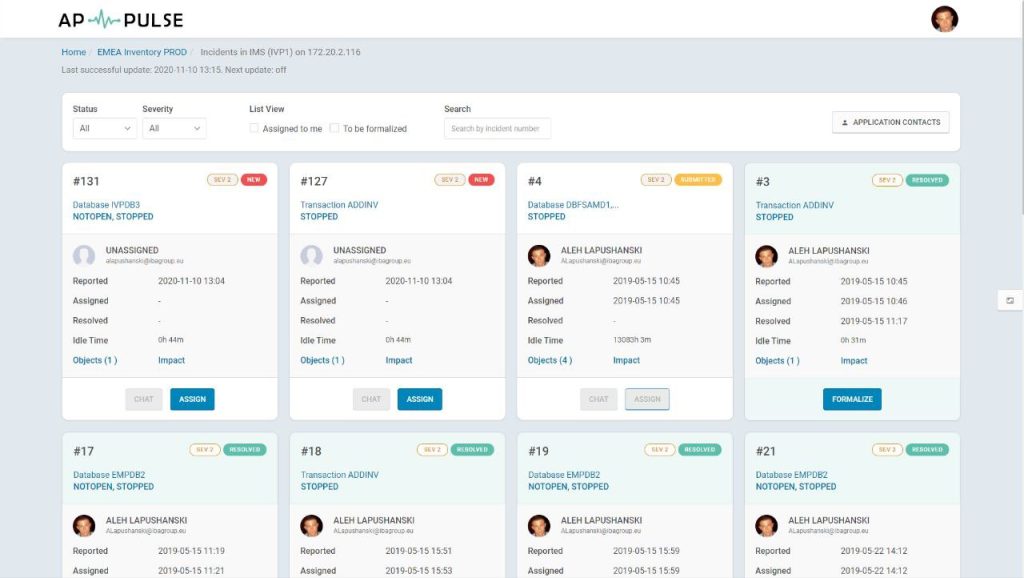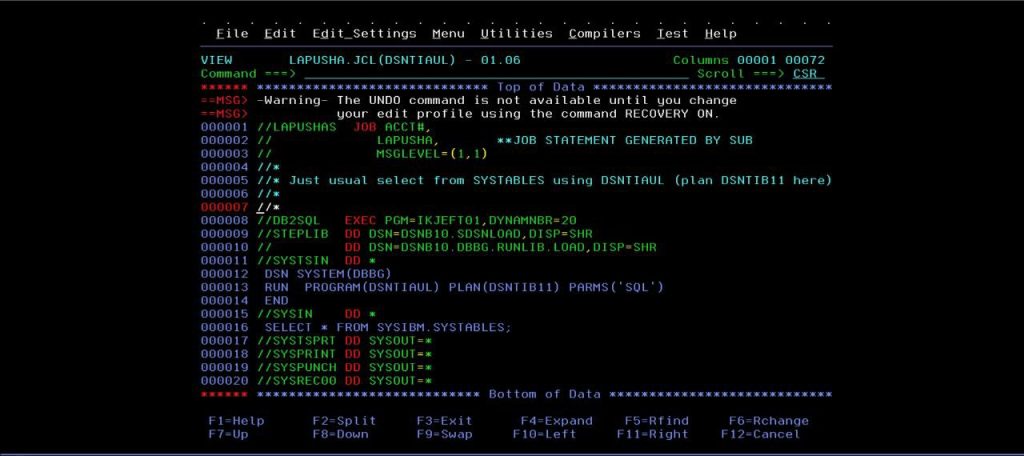Resolve Legacy System Challenges with Knowledge Transfer
Mainframes bring about a variety of challenges to our ever-evolving enterprises. After half a century, mainframes are still a necessary reality for a variety of large businesses who cannot afford to run the risk of losing time or operability. Given that mainframes continue to be an important part of the reality for developers, engineers, and technology stakeholders, we must take a look at all the ways in which we can reduce or avoid operational problems in applications running on mainframes to minimize business impact.
Today, we are taking a deeper dive into how important knowledge transfer is when working with a variety of applications on mainframe. And, just as importantly, we are looking at how Appulse can help with that knowledge transfer. And how it can improve processes, increase efficiencies, save money, and reduce stress.
The Appulse Origin Story
To do this, let’s take a look at how – and why – Appulse came to exist. Our team of experienced engineers at IBA Group is dedicated to SMART Solutions. That means, we work for sustainable, multi-faceted, automated, reliable, and trusted approaches to enterprise needs and challenges. We designed Appulse with these values at the center of our thinking.
Appulse is created specifically for business applications that run on mainframe. With over thirty years of experience working with mainframe, our engineers and developers understand the need for a well-functioning mainframe as much as we understand how difficult it can be to work with and maintain that mainframe. This is one of the many reasons why we designed Appulse to work with business applications running on mainframe.
We understand that, in practice, a number of challenges can come with legacy systems. Knowledge is inevitably lost when new hires replace developers that know your mainframe applications inside and out. We created Appulse expressly to resolve these issues. And to make your systems smarter and more efficient. Our primary goal with Appulse is to create a reliable process behind operational support for business applications. And we do so in a way that improves Team Member collaboration and operations across the enterprise.
Knowledge Transfer
Solving operational problems is an important piece of the puzzle. But it is only one piece. For true efficiency and return on investment, your systems need to suffer from fewer issues. You need to have access to a tool that identifies issues before they have a significant negative impact on operations. And you need to be able to resolve those issues consistently and quickly.
More to the point, you need to have a way of storing those solutions so that you are not forced to go through the process of designing and redesigning solutions to the same problems because there is no centralized knowledge storage. Or because your solutions are housed only in the mind of one employee who may retire – or take a vacation.
All of this speaks to the knowledge transfer issue, and it is a significant issue when it comes to mainframe applications that we rely on to keep business running. The first step is to recognize that knowledge transfer and share is, in fact, the weakest point of applications.

Old Code
In many cases, you are likely to be dealing with code that was written 30 – 50 years ago. Since then, a hodgepodge of individuals has been involved in the development and maintenance of that code. Every developer’s temporary fix exists in that legacy. But every path to a resolution is not stored. And you move farther and farther away from the efficiencies our systems – and our businesses – require. All the while, you are losing your two most precious assets: time and money.
Even if you have very little turnover in your engineering and development teams, fifty years is a long time. Every time one person leaves, their knowledge is lost to the new person who comes in. Their way of solving problems for you is gone. This is through no fault of the developers. There simply has never been a streamlined, reliable way of storing that person-specific knowledge and accessing it when you need it to solve problems. The majority of their wisdom is in their heads, and so, it goes where they go.
Wise Solutions Database
Enter Appulse. Our idea was to create an application that will assimilate problems and solutions for mainframe support of business applications. We created a “wise solutions database” that puts all the valuable knowledge in a centralized, searchable location. And that connects issue identification with the stored solutions.
Then it goes the next step and allows developers to load new solutions and initiate fixes for different types of operational problems that Appulse then stores to speed up and refine the solutions process next time.
Three Step Process
Appulse enables a simple three-step process that helps to resolve the legacy challenges that plague many organizations running on mainframes. Step one, it identifies an operational problem. Step two, it investigates that problem. Step three, with input from application support, it solves the problem. Then it stores information about the problem and its solution to improve efficiencies and outcomes next time, no matter who the developer that is supporting the application.
Real World Scenarios Show Why Knowledge Transfer Matters
Appulse is about more than storing all your team’s collective knowledge in one place. There is a real world need for the ability to recognize and resolve issues quickly. While developers are scrambling to figure out what went wrong, to remember the solution they applied a long time ago, or figure out who to ask for help, your business is losing money. Users are complaining, and time is wasted.
In the case of Appulse, the moment a problem occurs (no matter what time of the day or night), we get an alert to investigate. Take a bank, for example, we may get an alert that a transaction has stopped, or a critical job has been abandoned. In cases like this, even a small interruption or a malfunction at one step of a deep, rich process will prevent the process from proper completion. And everyone will suffer.

These kinds of problems are critical to businesses. In one case, we encountered a problem on one of the supported applications, like an Accounts Receivables Application. We then spent a few hours investigating the problem (the job had stopped opening online for users). After getting the alert to look at the issue, and spending quality research time investigating the problem, we were able to identify exactly what it was. Then, we were able to determine how long it would take to fix the problem, and to fix it.
Our developers received that alert at about 4:00AM. The issue was resolved by 11:00AM. So, the application itself was only down for about two-and-a-half hours of the business day. That is still longer than anyone wants. Now, with Appulse, when we fix this kind of problem, we also store the solution. So, if (and when) a similar problem occurs, our network will find the issue and identify the solution. Then, all we need to do is submit and deploy the solution. That means the application faces nearly no downtime. And our knowledge is stored, transferred, and deployed effectively and efficiently.
Operational Support
Especially in the case of high stakes businesses, like banking, transportation, and so many of the other industries with which we work, the ability to deliver solutions quickly, reliably, and repeatably is key. Appulse enables us to provide the kind of consistent operational support that reduces stress and minimizes the escalation of applications issues.
But operational support is about even more than improving functionality at the system-level. With Appulse, we are able to provide a greater level of support at the human level. When working with legacy systems, as so many developers and engineers do, it is difficult to overcome some of the challenges that they encounter.
Many developers we work with, who work on mainframe, note that it can be hard to have their head working in the right way all the time, and to encounter obstacles and one-off solutions that seem out of place and unclear. The challenge is even greater for newcomers, who often struggle to get on track with operational support.
All of this competes with a developer’s ability to provide efficient, effective solutions that keep your business running smoothly. It amounts to a waste of time, a reduction in motivation, and loss of hard-won knowledge. We are proud that Appulse helps to resolve these issues, just as much as it resolves the business applications issues we built it to fix.